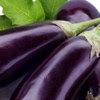 For ➍
For ➍1 cauliflower
½ pumpkin
4 handfuls of rocket
200 g cooked chickpeas
200 g wheat semolina
120 g feta* or 20 falafels
4 tbs olive oil
4 ts ground garlic, paprika, cumin
sauce*:
3 tbs olive oil
1 tbs honey
1 tbs mustard
1 lemon, juiced
1 clove crushed garlic
finishing:
pomegranate
coriander
Preheat the oven to 200°C
In the meantime, cut the cauliflower and pumpkin into pieces of about 2 cm. Drain and rinse the chickpeas.
Divide the cauliflower and pumpkin pieces on a plate and brush them with half of the herbs and olive oil.
Do the same with the chickpeas on a second plate.
[Or spread everything out on a large baking tray].
Bake everything for 40 m.
Cook the wheat semolina with boiling water.
Prepare the sauce. Mix the olive oil, honey, mustard, lemon juice and the crushed garlic clove in a bowl.
Prepare the winter tabouleh by combining the rocket, semolina and roasted vegetables. Drizzle with the sauce, sprinkle with crumbled feta or add the falafels and mix again. If desired, finish with fresh pomegranate and coriander. Serve warm.
The tabouleh salad can be stored in an airtight container in the refrigerator for 2-3 days.
*Double the quantity of sauce for more taste.



















